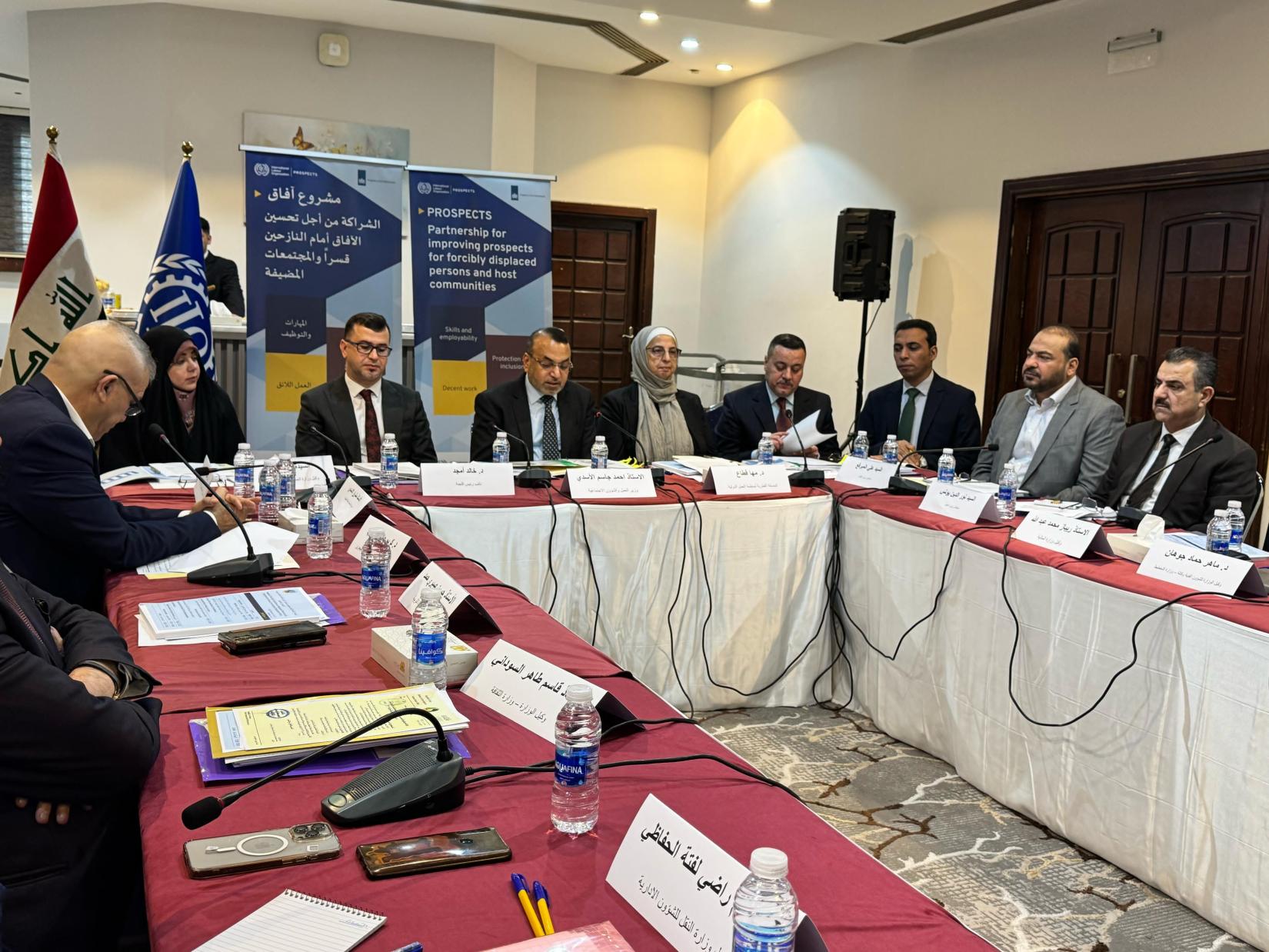Discussion on the National Employment Policy – Meeting of the High Committee for Workforce Planning and Employment
14 February 2025
With the participation of the International Labour Organization (ILO), Iraq's High Committee for Workforce Planning and Employment held its first meeting of 2025 to discuss the final draft of the National Employment Policy for Iraq (2025-2030). This policy aims to promote the creation of sustainable job opportunities, enhance labor market efficiency, and improve working conditions.

Baghdad,
The National Employment Policy seeks to foster inclusive economic growth by providing sustainable employment opportunities and reducing unemployment rates, with particular attention given to the most vulnerable groups, especially forcibly displaced persons, to ensure their inclusion in national systems. The policy also aims to improve the work environment, enhance the performance of labor institutions, develop skills, support entrepreneurship, and strengthen social protection, contributing to long-term economic and social stability.
During the meeting, Iraq’s Minister of Labour and Social Affairs, Mr. Ahmed Al-Asadi, stated, “The Iraqi people are a young nation, with 65% of the population being of working age. This makes it essential to establish effective employment mechanisms and plans to empower those who can contribute to building the country. We are here to provide practical details on how to activate these plans and turn them into reality by reviewing the National Employment Policy and discussing potential amendments through joint efforts in this meeting.”
The meeting addressed several key areas, including a comprehensive discussion of the National Employment Policy. Senior officials from various Iraqi ministries, trade unions, and employers' organizations, who are members of the committee, engaged in detailed dialogues to ensure the policy aligns with national employment goals and responds to the evolving needs of the workforce.
Representatives from the Ministries of Migration and Displacement, Industry and Minerals, and Environment, along with other ministries, labor organizations, and employers' organizations participating in the committee, provided their feedback on the final draft of the National Employment Policy. They commended the policy’s robustness and acknowledged the role of national experts in developing it to align with Iraq’s national policies and strategies.
The ILO contributed valuable technical insights through its regional specialists and Iraq office, supported by the PROSPECTS Iraq partnership, funded by the Government of the Netherlands. The organization also highlighted the development and coordination processes, along with a comprehensive framework for implementing the proposed policy.
Dr. Maha Kattaa, ILO Coordinator in Iraq, emphasized during the meeting that the National Employment Policy serves as a cornerstone for achieving sustainable development and enhancing economic and social stability in Iraq. She stressed the importance of adopting a holistic approach to addressing unemployment, stimulating economic growth, and promoting decent work conditions. She also highlighted the significance of public-private partnerships, the development of training and employment programs, and the promotion of entrepreneurship to create sustainable job opportunities. Dr. Kattaa called for joint efforts among all stakeholders to ensure the implementation of an effective employment policy that meets labor market needs and contributes to development and stability.
The meeting concluded with an agreement to adopt the final draft of the National Employment Policy after incorporating the final amendments proposed by the Chair and members of the High Committee for Workforce Planning and Employment, to be submitted to the Council of Ministers. The ILO provided the necessary technical support to the Government of Iraq in drafting the policy through an effective tripartite social dialogue process that spanned over three years. This process included multiple stages of policy development at various levels, reinforcing the principles of participatory policymaking between the government, labor organizations, and employers' organizations in shaping national policies aimed at achieving decent work in Iraq.


